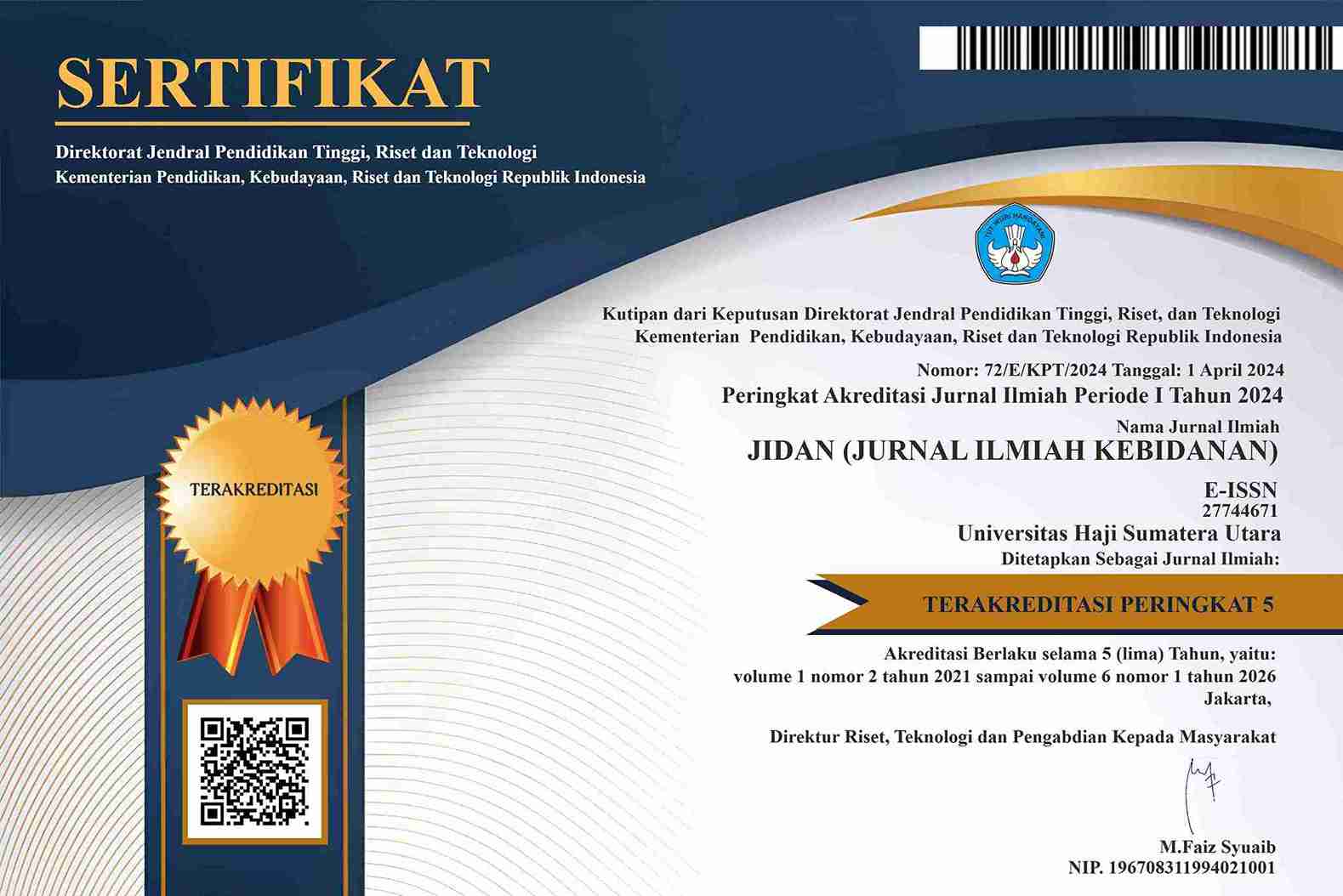Kajian Literatur : Determinan Praktik Pemberian Asi Eksklusif Di Indonesia
DOI:
https://doi.org/10.51771/jidan.v5i1.1445Keywords:
ASI eksklusif, Faktor sosial, Kebijakan tempat kerja, Dukungan keluarga, Edukasi menyusuiAbstract
Pemberian Air Susu Ibu (ASI) eksklusif merupakan upaya penting dalam meningkatkan kesehatan bayi dan ibu. Namun, cakupan ASI eksklusif di Indonesia masih belum mencapai target yang diharapkan. Penelitian ini bertujuan untuk mengidentifikasi faktor-faktor yang mempengaruhi keberhasilan pemberian ASI eksklusif dengan menggunakan pendekatan systematic review. Data dikumpulkan dari 10 jurnal yang relevan melalui database ScienceDirect, Medline/Pubmed, dan Google Scholar. Hasil analisis menunjukkan bahwa faktor sosial-budaya, tingkat pendidikan ibu, dukungan keluarga, serta kebijakan tempat kerja memainkan peran penting dalam keberhasilan ASI eksklusif. Studi juga menemukan bahwa edukasi tentang teknik menyusui yang benar dan intervensi oleh tenaga kesehatan dapat meningkatkan angka keberhasilan ASI eksklusif. Oleh karena itu, diperlukan pendekatan yang lebih komprehensif untuk meningkatkan cakupan ASI eksklusif, termasuk perbaikan kebijakan, peningkatan dukungan keluarga, serta penguatan peran tenaga kesehatan dalam memberikan edukasi dan pendampingan kepada ibu menyusui
References
Batujaya, A., et al. (2023). Comparison of exclusive breastfeeding success in mothers with and without pregnancy complications. Journal of Maternal Health, 15(3), 78-90.
Iswara, D., et al. (2022). Workplace policies supporting exclusive breastfeeding: A cross-sectional study. Public Health Journal, 10(2), 45-59.
Kemenkes RI. (2020). Hasil Utama Riset Kesehatan Dasar 2018. Kementerian Kesehatan Republik Indonesia.
Kementerian Kesehatan Republik Indonesia. (2022). Laporan Status Gizi Indonesia.
Mekarsari, R., et al. (2023). The impact of exclusive breastfeeding education interventions: A case-control study. Health Promotion Journal, 18(4), 112-124.
Nurokhmah, S., et al. (2022). The relationship between health service access and exclusive breastfeeding. Community Health Research, 12(1), 30-42.
Padeng, E. P., et al. (2022). The effect of exclusive breastfeeding socialization by health workers. Midwifery and Child Health Journal, 9(3), 101-115.
Pakilaran, R., et al. (2023). The influence of maternal education on exclusive breastfeeding practices. Pediatric and Maternal Nutrition Journal, 7(2), 67-80.
Pratiwi, L., et al. (2021). The relationship between breastfeeding techniques and exclusive breastfeeding success. Nursing and Midwifery Journal, 14(2), 55-70.
Rahmita, T., et al. (2023). The role of husband support in exclusive breastfeeding. Family and Reproductive Health Journal, 11(3), 88-102.
Simbolon, M., et al. (2023). The impact of maternal health on exclusive breastfeeding failure. Maternal and Infant Nutrition Journal, 10(4), 150-165.
Sukma, R., et al. (2023). The influence of social factors on exclusive breastfeeding. Indonesian Journal of Public Health, 20(1).
UNICEF. (2021). Breastfeeding: A Mother's Gift for Every Child. UNICEF Publications.
WHO. (2020). Exclusive Breastfeeding Recommendations. Geneva: World Health Organization.
Downloads
Published
Issue
Section
License
Copyright (c) 2025 Devy Lestari Nurul Aulia, Arum Dwi Anjani

This work is licensed under a Creative Commons Attribution-ShareAlike 4.0 International License.
























